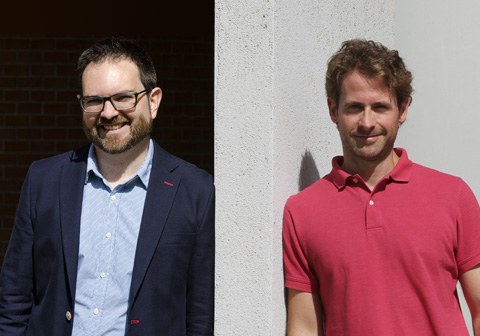Following the gradual retreat of other stereotypes, political ideas are becoming established as a significant reason for arousing trust or mistrust between people. This is one of the main conclusions in an article ("The tie that divides: Cross-national evidence of the primacy of partyism") recently published in the prestigious European Journal of Political Research. The article, in which Sean Westwood (Dartmouth College) figures as the lead researcher, has among its co-authors different researchers from the Universities of Stanford and Antwerp, and the Berlin Social Science Center, as well as the UPV/EHU lecturers Rafael Leonisio and Luis Miller.
Discrimination on the grounds of political ideas prevails over that exercised on the basis of other criteria
A recent international study, in which lecturers from the UPV/EHU-University of the Basque Country participated, confirms greater trust among people sharing an ideology vis-à-vis those who hold different ideas
- Research
First publication date: 29/09/2017

The article starts with the experimental studies conducted in the United States using the so-called "confidence game", an experience in which two players participate. Player A is assigned 10 dollars and has to decide how much of this amount he/she will send to player B. The amount B is sent will be multiplied threefold. At the end, player B has to decide how much money to return to A in such a way that the money that A sends would be a measure of the degree of trust he/she would have in B, in other words, the degree to which A trusts B to return part of the money handed over.
In the study, the authors found that the participants had less trust in (sent less money to) participants holding a different ideology (democrat or republican) than in those with whom they in fact shared the vote. While the partisan division has a significant effect on trust, interacting in the game with people of a different racial origin was not found to affect trust in the same way. This led to the conclusion that antagonism towards ideologically opposed people is greater than that expressed towards people of a different race.
Following this study conducted on North-American society, the research presented now consisted of replicating the experiment in three societies with political systems that are different from the American one: the United Kingdom, Belgium and the Basque Country. The results obtained according to ideology were compared with those obtained according to other parameters: religion, in the case of the United Kingdom; region in the case of Belgium; and origin (indigenous ancestry or not) in the Basque Country.
As in all the other countries analysed, discrimination based on the ethnic criteria was found to be very low in the Basque Country, much lower than that produced by sympathies towards different political parties. In the same way, bearing in mind the double left-right, nationalist-constitutionalist parameter, closeness to one or more of the axes was found to moderate the negative effect of the partisan bias.
What causes partisan discrimination to go on increasing when one is witnessing advances in the reduction in other types of discrimination? In the view of Rafael Leonisio and Luis Miller, "there are social norms against any kind of discrimination but not against partisan discrimination. Thus, unlike what happens with racial or gender discrimination, which are severely penalised by social norms, the corresponding pressures in the case of partisan discrimination do not exist. As we can see every day in the political debates and chat-shows in Spain, and in other countries in our area, hostility towards and prejudice against those who do not share our political ideas are fully accepted socially and they barely make us blush. And the fact that the rhetoric of most of the leaders of the parties makes it seem perfectly acceptable to despise political opponents".
Bibliographic reference
- The tie that divides: Cross-national evidence of the primacy of partyism
- European Journal of Political Research
- DOI: 10.1111/1475-6765.12228






